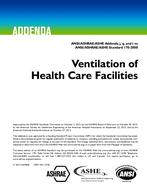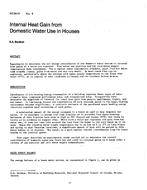Click here to purchase
Buildings account for 38.9% of primary source energy and produce 38% of CO2 emissions in the US. In residential buildings, most of this energy – 75% is used in heating, cooling, ventilation and domestic hot water production. In particular, 17% of electricity generated for commercial and residential buildings is used for space cooling. Cooling requirements are especially prevalent in developing countries which are experiencing significant economic growth, motivating the need for more efficient space cooling technologies.
Prior studies involving CO2 as a refrigerant were for DHW (Domestic Hot Water) or space heating applications. Heat pumps that use ground source exchange (GSE) systems take advantage of lower ground temperatures as compared to ambient air temperatures. This lower heat sink temperature increases heat pump efficiency. Combining transcritical operation of CO2 with ground-source exchange increases overall refrigerating efficiency. If waste heat is also utilized, the system can simultaneously provide heat for DHW and reduce required bore-hole length. Designing a CO2 based cooling system with GSE introduces challenges and advantages that will be explored in the design of a cooling system for a typical 7,000 square foot office building located in Pittsburg, PA.
Citation: ASHRAE Conference Papers, Montreal, QC
Product Details
- Published:
- 2011
- Number of Pages:
- 9
- File Size:
- 1 file , 790 KB
- Product Code(s):
- D-ML-11-C035


